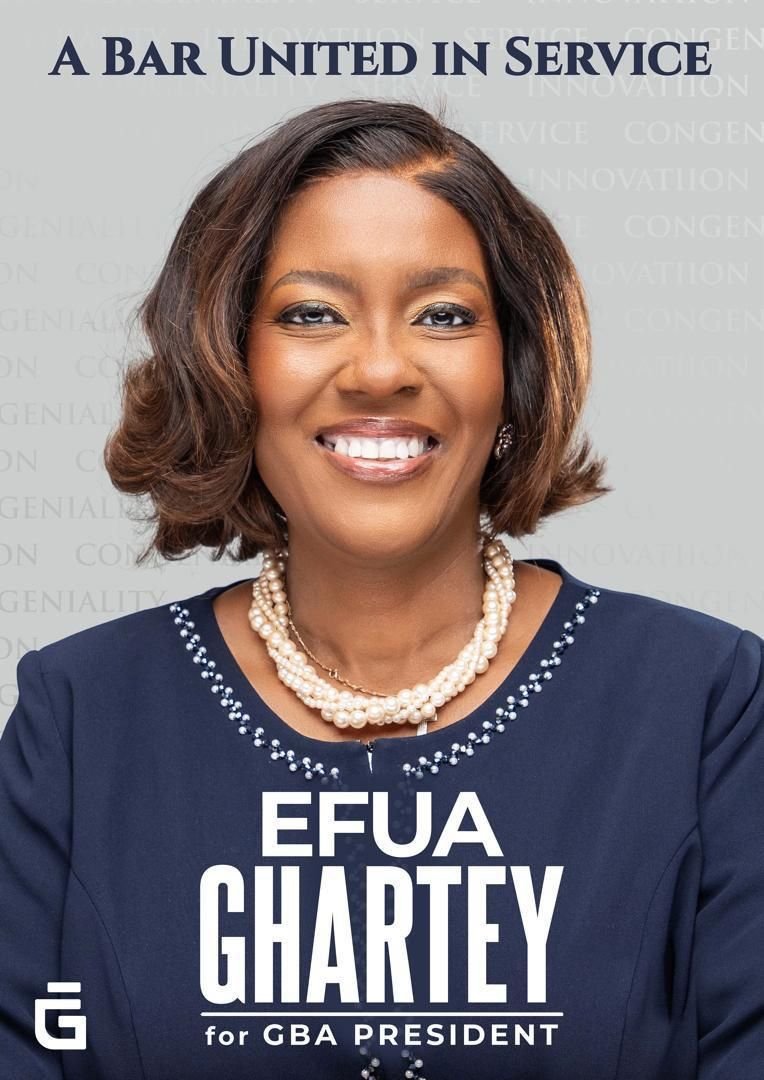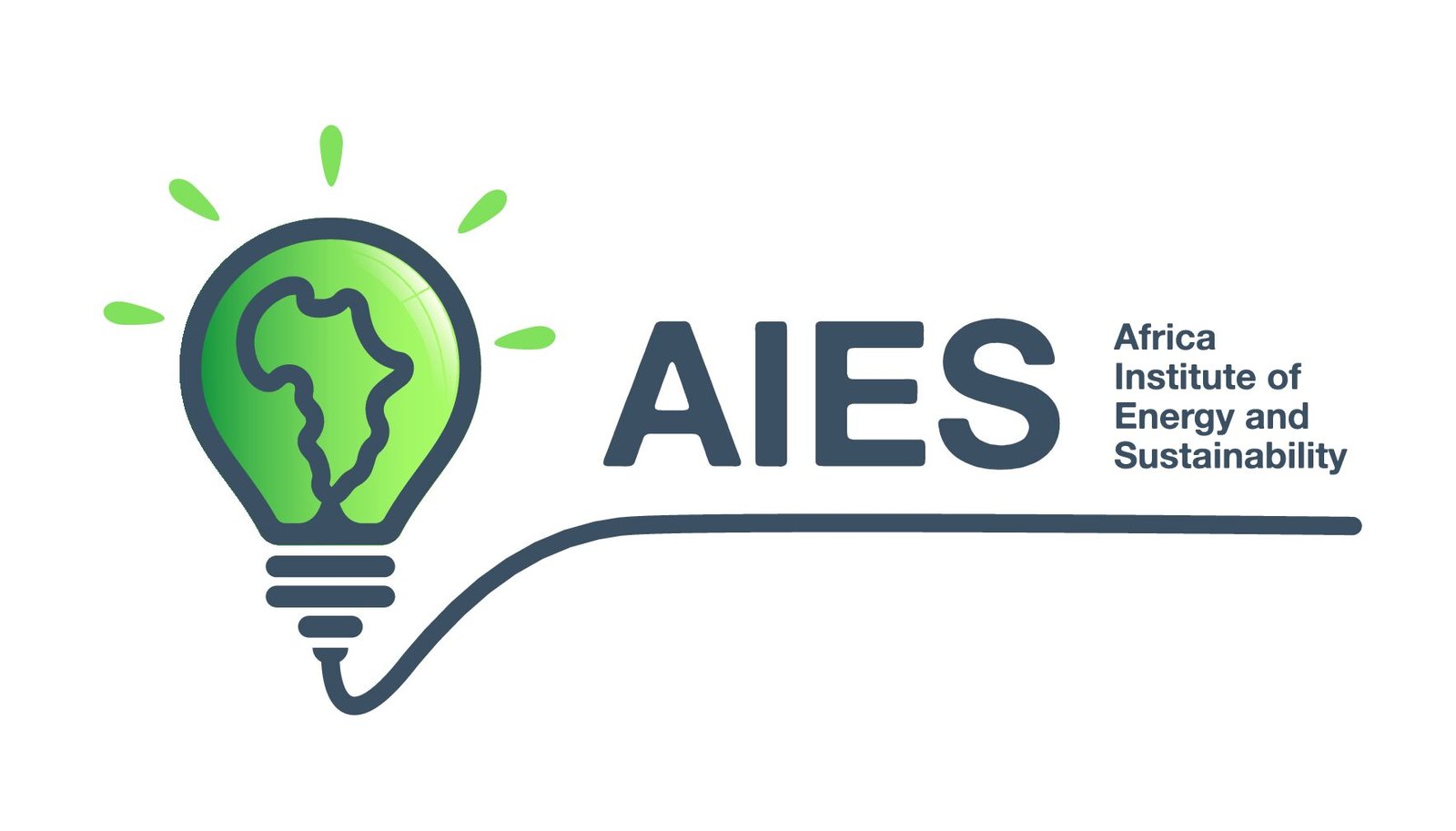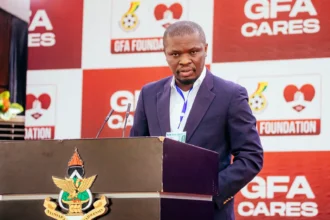Kings University College (KUC) SRC donates to Nsawam Medium Security Prison
On Friday, 20th September 2024, the Students' Representative Council (SRC) of Kings University…
LIVE: 2024 Presidential Election: Bernard Mornah, Janet Nabla others disqualified
The Electoral Commission (EC) has disqualified the People’s National Convention (PNC), Bernard…
VIDEO: Voter exhibition exercise was an exercise in futility – Osman Ayariga
The deputy National Youth Organizer of the National Democratic Congress (NDC), Osman…
Historic! Two female lawyers- Efua Ghartey, Victoria Barth take over GBA as Prez & Vice
Two distinguished female lawyers have made history by securing the two topmost…
Efua Ghartey elected first female President of GBA
Mrs. Efua Ghartey has been elected as the President of the Ghana…
Organized Labour threatens to strike over galamsey if govt doesn’t act by end of September
In a press statement delivered today by Brother Joshua Ansah, Secretary General…
Parliament shall not cease and desist from transmitting the anti-gay bill – Bagbin replies Presidency
The Speaker of Parliament, Alban Bagbin, has insisted that the house will…
Parliament unable to approve your nominated ministers – Bagbin to Akufo-Addo
The Speaker of Parliament, Alban Kingsford Sumana Bagbin, has indicated that the…
IWD 2024: Breaking the Silence, Investing in Women’s Mental Health
In a world that's constantly in motion, women balance a variety of…
Ghana at 67: Reflections on Progress, Challenges, and the Uncharted Road Ahead
As the vivid hues of red, yellow, and green cascade over the…
Excavator, trucks seized in anti-galamsey raid by National Security in Ankaase
The Eastern Regional National Security has impounded an excavator, a lowbed vehicle,…
Global Oil Prices Surge Amid Escalating Israel-Iran Tensions, Posing Inflationary Risks for Ghana
Crude oil prices have surged significantly on the international market, rising from…
NSS Scandal: Mustapha Ussif Breaks Silence, Denies GH₵548m Fraud Claims
Former Executive Director of the National Service Scheme (NSS), Mustapha Ussif, has…
Mahama directs Armed Forces to provide escort for vehicles within Bawku conflict zones
President John Dramani Mahama has directed the Ghana Armed Forces to provide…
Parliament to begin vetting of seven Supreme Court nominees on June 16
Parliament’s Appointments Committee will begin vetting seven nominees to the Supreme Court…
You’ll start receiving allowances from next month – Mahama to nursing trainees
President John Dramani Mahama has assured nursing trainees across the country that…
Jean Mensa to appear before Parliament over Ablekuma North results delay
Chairperson of the Electoral Commission (EC), Jean Mensa, is set to face…
Minority accuses government of illegally extending mining lease agreement with Goldfields Daamang
The Minority in Parliament has accused government of constitutional breaches in the…
IGP commends Police Hospital staff for outstanding service during nurses’ strike
The Inspector-General of Police (IGP), Mr Christian Tetteh Yohuno, and members of…
Bryan Acheampong calls for unity and discipline within NPP
Member of Parliament for Abetifi Constituency and leading member of the New…



























